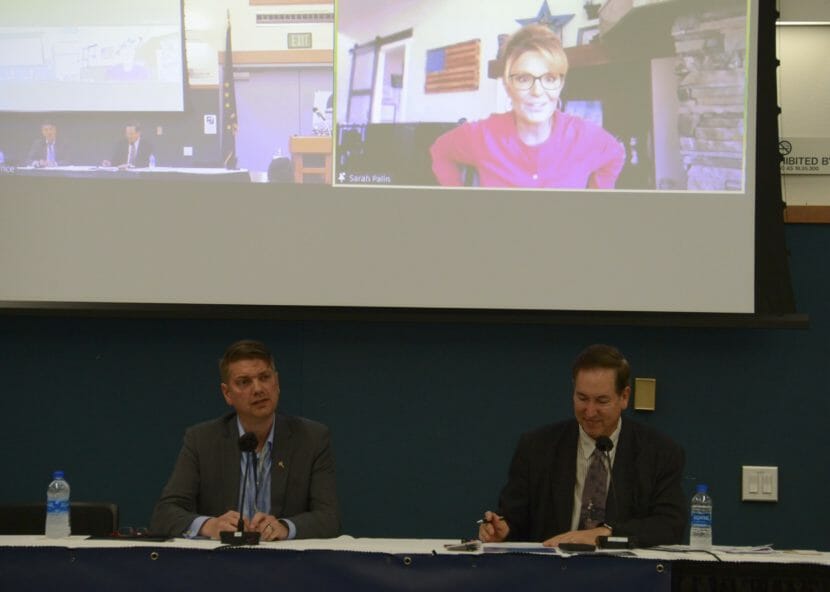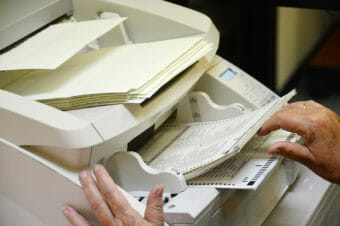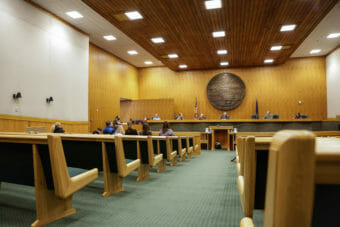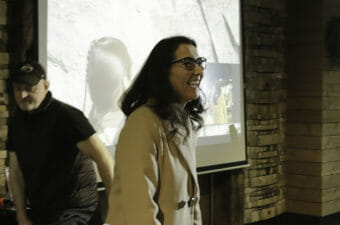
Ketchikan residents still remember the moment when Sarah Palin said on national TV, “thanks but no thanks for that bridge to nowhere.”
The bridge would have linked the Southeast Alaska town with neighboring Gravina Island, home to the city airport and flat land now seen as needed for affordable housing.
“When you mention Sarah Palin, it’s the first thing people think about,” said Jeremy Bynum, a member of the Ketchikan Gateway Borough and candidate for state House, about the bridge.
“It’s synonymous,” he said.
Palin’s speech was 14 years ago, but as she seeks a full term in the U.S. House of Representatives, that action and others from her time as governor and a Republican vice presidential candidate have overshadowed her campaign for U.S. House.
Polling indicates support for Palin has barely budged since the start of her campaign, and the number of Alaskans who disapprove of her — about 60% of registered voters — has also remained steady.
On Thursday, Palin and fellow Republican Nick Begich appeared at a U.S. House candidate forum in Ketchikan. In an Aug. 16 special election, the pair split Alaska’s Republican votes, helping Democratic candidate Mary Peltola win the race. Peltola was sworn in this week and did not attend the forum.
All three, and Libertarian candidate Chris Bye, are seeking a full two-year House term in the Nov. 8 general election.
In August, Palin had more support than Begich but less than Peltola. Under Alaska’s new ranked-choice voting system, Begich was eliminated, allowing his supporters to put their votes toward a different candidate. Half chose Peltola or no one at all, denying Palin a victory.
Polling since the election indicates the pattern is likely to repeat in November unless something changes in the race.
During the forum, Begich and Palin were mostly civil toward each other — a change from their campaigns during the special election — but Begich brought applause in the city’s civic center when he reminded attendees of the bridge.
“If we had a bridge in Ketchikan to Gravina Island, maybe we wouldn’t have such a problem with housing down here,” Begich said.
“I will tell you, you know, when you see politicians trying to score political points by canceling the projects that this community relies on, that should tell you everything about where their priorities are. It’s not with you. It’s with them,” he said.
Trevor Shaw, a local resident who formerly served in local government and unsuccessfully ran for state House, said Palin’s handling of the bridge was flawed.
“It wasn’t that it was canceled, it was how it was canceled,” he said. “We found out when the rest of the country did.”
He recalls Palin telling the local chamber of commerce, weeks before her speech, that she supported the bridge.
The Gravina Island Bridge was a priority of former Congressman Don Young, who earmarked millions of dollars in the federal budget for it, only to see Palin reject the money.
Begich and Palin, seeking to hold the office Young once held, both said they oppose earmarks and would not use them.
“Absolutely not,” Palin said. “Earmarks are a problem in Congress. It leads to the crony capitalism, to the favoritism, to the corruption in Washington, D.C., where politicians are trying to bring home the bacon to serve the constituents in order to get reelected and reelected.”
Earmarks by former Alaska officials, including Young and former U.S. Sen. Ted Stevens, built many projects in rural Alaska, and the Ketchikan audience appeared uncomfortable with the positions of Begich and Palin on the issue.
Attendees of Southeast Conference, a regional gathering of political and business leaders, said housing and child care are among their top needs, and Gravina Island is seen as a place where housing can be built affordably in Ketchikan. Southeast Conference held Thursday’s forum.
Bynum said that local officials know the bridge is unlikely to return, but he and others said there’s still a need to get to Gravina Island, whether by ferry or bridge.
“Access is the biggest thing,” said Borough Assembly member Jaimie Palmer.



